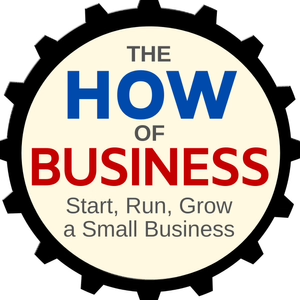
The Damien Riehl Interview - Legal Data, Legal AI, and Thoughts on a Legal Tech Duopoly
10/09/24 • 56 min
In this episode of the Legal Tech Startup Focus podcast, I welcome Damien Riehl, VP, Solutions Champion, at vLex and a leader at SALI (Standards Advancement for the Legal Industry).
Damien provided an insightful overview of vLex, a legal data/legal data science company that boasts an impressive repository of over a billion legal documents from the United States and worldwide. He explained how vLex utilizes data science to tag and structure this vast amount of information, enabling users to run large language models (LLMs) across the data to answer complex legal questions.
We also explored the significance of having well-structured data and how SALI contributes to this by providing a comprehensive taxonomy of legal concepts, dramatically enhancing legal data's usability.
As we delved deeper, we discussed the retrieval-augmented generation (RAG) concept and how vLex employs a five-stage process to increase the likelihood that the legal answers provided by vLex’s LLMs are grounded in reliable data. Damien elaborated on how this process not only retrieves relevant cases but also analyzes their validity and relevance, providing users with a robust legal analysis that would typically take hours of work for a lawyer.
We also touched on the implications of generative AI for the legal profession, particularly how it could disrupt traditional billing models. Damien highlighted the advantages for plaintiff-side lawyers who can leverage VLex’s technology to save time and increase profitability while addressing the potential challenges for defense-side lawyers relying on hourly billing.
The conversation then shifted to the competitive landscape of legal tech, where we discussed the risks posed by large tech companies potentially absorbing legal tech innovations.
Damien emphasized the importance of having unique data sets and value propositions to stand out in a crowded market, warning that companies that merely act as wrappers around existing LLMs without offering additional value may need help to survive.
Towards the end of our discussion, we explored the future of AI in legal tech, particularly the integration of symbolic reasoning with neural networks. Damien shared his insights on how combining these two approaches could enhance AI's reasoning capabilities, making it more effective in the legal domain.
We concluded with a discussion on the importance of free access to legal data and how it could foster innovation and competition in the legal tech space.
This episode is packed with valuable insights for anyone interested in the intersection of law and technology, particularly those looking to understand how data science and AI are transforming the legal landscape.
In this episode of the Legal Tech Startup Focus podcast, I welcome Damien Riehl, VP, Solutions Champion, at vLex and a leader at SALI (Standards Advancement for the Legal Industry).
Damien provided an insightful overview of vLex, a legal data/legal data science company that boasts an impressive repository of over a billion legal documents from the United States and worldwide. He explained how vLex utilizes data science to tag and structure this vast amount of information, enabling users to run large language models (LLMs) across the data to answer complex legal questions.
We also explored the significance of having well-structured data and how SALI contributes to this by providing a comprehensive taxonomy of legal concepts, dramatically enhancing legal data's usability.
As we delved deeper, we discussed the retrieval-augmented generation (RAG) concept and how vLex employs a five-stage process to increase the likelihood that the legal answers provided by vLex’s LLMs are grounded in reliable data. Damien elaborated on how this process not only retrieves relevant cases but also analyzes their validity and relevance, providing users with a robust legal analysis that would typically take hours of work for a lawyer.
We also touched on the implications of generative AI for the legal profession, particularly how it could disrupt traditional billing models. Damien highlighted the advantages for plaintiff-side lawyers who can leverage VLex’s technology to save time and increase profitability while addressing the potential challenges for defense-side lawyers relying on hourly billing.
The conversation then shifted to the competitive landscape of legal tech, where we discussed the risks posed by large tech companies potentially absorbing legal tech innovations.
Damien emphasized the importance of having unique data sets and value propositions to stand out in a crowded market, warning that companies that merely act as wrappers around existing LLMs without offering additional value may need help to survive.
Towards the end of our discussion, we explored the future of AI in legal tech, particularly the integration of symbolic reasoning with neural networks. Damien shared his insights on how combining these two approaches could enhance AI's reasoning capabilities, making it more effective in the legal domain.
We concluded with a discussion on the importance of free access to legal data and how it could foster innovation and competition in the legal tech space.
This episode is packed with valuable insights for anyone interested in the intersection of law and technology, particularly those looking to understand how data science and AI are transforming the legal landscape.
Previous Episode

Episode 61 of the Legal Tech StartUp Focus Podcast -- An Interview with Michael Stych, Co-Founder and CEO of Contend
After Charlie introduces Mike and congratulates him on the recent Time of London article about Contend, Charlie and Mike discuss:
- Just what it is that Contend (at https://contend.legal) does to provide safe, accessible, and affordable information for "regular people" when those people confront a legal issue (principally, providing both signposts to information resources (often secondary sources aimed at non-professionals) and connecting people to legal professionals and other organizations that can provide additional help)
- Why Contend at present operates only in England and Wales (primarily because (i) the UK's regulation of the legal services delivery system is less hidebound by outdated and overly broad "unauthorized practice of law" rules and (ii) the UK's legal innovation culture is so well developed)
- How Contend markets its product offerings (initially focussing on paid Google ads, now coming to rely more on organic Google search of access-to-justice content that Contend creates, and partnering with A2J nonprofits and other brand-building efforts)
- The significant business challenge Contend has so far faced (customer acquisition - and, in particular, conveying why Contend is a service provider that consumers can trust) and the most significant "win" that Contend is to date most proud of (having as significant and favorable an impact on people's lives as Contend has had)
Link to Times of London article about Contend: https://www.thetimes.com/uk/law/article/we-use-ai-to-make-justice-more-accessible-to-ordinary-people-fk78crxtt
Next Episode

Building and Scaling Legal Tech: Lessons from Gary Sangha, the CEO of LexCheck During LexCheck's Decade of InnovationLegal Tech StartUp Focus Podcast
In this episode of the Legal Tech Startup Focus podcast, I had the pleasure of speaking with Gary Senga, the CEO of LexCheck. This company has been at the forefront of legal technology for nearly a decade. We delved into Gary's journey as an entrepreneur, including his previous startup, Intelligize, which LexisNexis acquired, and how that experience shaped his approach to LexCheck.
Gary provided an insightful overview of LexCheck, emphasizing its evolution from a natural language processing (NLP) development shop to a leader in AI-driven contract review solutions. We discussed their latest offering, LexCheck Insights, which combines NLP with large language models (LLMs) to create a powerful contract review tool. Gary highlighted the unique features of LexCheck Insights, including its ability to generate playbooks in minutes and its best-in-class redlining capabilities.
As we explored the competitive landscape, Gary explained how LexCheck distinguishes itself from other players in the market. He pointed out the limitations of traditional LLMs in contract review and how LexCheck's proprietary pre-processing and post-processing technologies enhance the quality and comprehensiveness of contract analysis. This nuanced approach allows LexCheck to address the complexities of legal documents that many competitors overlook.
In discussing marketing and sales strategies, Gary candidly shared that there is no secret formula for success. He stressed the importance of hard work and a balanced approach to lead generation, combining both inbound and outbound strategies. He noted that legal tech sales often require a hands-on approach, as the legal industry has historically been slow to adopt new software solutions.
Gary offered valuable insights on onboarding for legal tech entrepreneurs. He advised against assuming that users will intuitively understand the software and emphasized the need for a thorough onboarding process. He encouraged startups to invest time and resources into helping users become comfortable with their products to avoid the dreaded "shelfware" phenomenon.
As we wrapped up our conversation, Gary reflected on the milestones that have brought him the most pride over the past ten years, particularly the joy of seeing customer renewals and the professional growth of his team members.
If you like this episode you’ll love
Episode Comments
Generate a badge
Get a badge for your website that links back to this episode
<a href="https://goodpods.com/podcasts/legal-tech-startup-focus-podcast-337652/the-damien-riehl-interview-legal-data-legal-ai-and-thoughts-on-a-legal-76060587"> <img src="https://storage.googleapis.com/goodpods-images-bucket/badges/generic-badge-1.svg" alt="listen to the damien riehl interview - legal data, legal ai, and thoughts on a legal tech duopoly on goodpods" style="width: 225px" /> </a>
Copy




